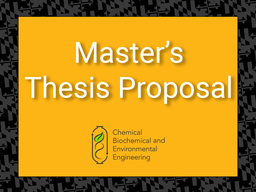MS Thesis Proposal: Vida Rahmatnejad
Location
Online
MS Thesis Proposal: Vida Rahmatnejad – Online Event
Date & Time
November 23, 2020, 3:00 pm – 4:00 pm
Description
Vida Rahmatnejad, MS Student
Advisor:
Dr. Govind RaoTitle:
Abstract:
Use of cells for the manufacturing purpose is an ancient idea dating back to old times when people brew beer and leavened bread by using yeast. However, until 1943 when Penicillium was produced as a medication using a microorganism called Penicillium chrysogenum, cells had not been used for medication production. In recent decades biopharmaceuticals have been an effective treatment for many life-threatening diseases such as HIV/AIDS and different types of cancer. Controlling the growth of recombinant cells such as Eschericia Coli is considered an essential factor for improving the productivity and efficiency of the manufacturing process of biopharmaceuticals. Studies show that low levels of dissolved oxygen (DO) or high levels of dissolved carbon dioxide (DCO2) in cell culture can lead to inefficient cell growth. Furthermore, the pH value should be balanced and stable to achieve optimal product. Nutrient concentration is another factor influencing the cell growth-Glucose is of the utmost importance in supporting rapid proliferation and effector functions as it is the main nutrient. As a result, to maintain the optimal conditions for product formation, it is critical to control parameters such as pH, DCO2 and DO, and glucose.
Considering the importance of process monitoring, new techniques are being devised for the measurement of a variety of elements such as ions, substrates, and products. Although, strategies to control the cell culture processes are considered primitive because of the shortcomings of sensors capable of monitoring the environment using reliable and precise models. Disposable small-scale cell culture vessels are widely used at early stages of bioprocess development but are not equipped with monitoring systems due to the lack of appropriate sensors. As a result, these processes are not studied from analytical point of view which makes them less repeatable and reliable. Considering this fact, FDA (Food and Drug Administration) encourages the design, analysis, and control of the manufacturing in the early stages of the development phase through process analytical technologies (PAT) initiative.
The Center for Advanced Sensor Technology has developed DCO2, pH and DO sensors to monitor cell culture environment. The low profile of the sensors makes them suitable for various kinds of vessels. This presentation will outline the noninvasive continuous monitoring system for DCO2 (featuring a sampler mounted outside the vessel) focusing on the improvements implemented on the original design of the sensor and integrating the sensor with the T flask. The evaluation of the noninvasive monitoring system for DCO2 shows promising results. The result from the evaluation of the noninvasive DCO2 sensor will be presented. In addition, future studies regarding noninvasive monitoring system for glucose and the application of the pH, DCO2, DO and glucose sensors as a measure of the cell viability and metabolic activity will be discussed.
Agenda:
3:00 PM: MS Thesis Proposal presentation will be open to the public with Q&A. Followed by a closed session with the committee and MS Student.Meeting Information
https://umbc.webex.com/umbc/j.php?MTID=mb57fef373054fe6ff945f66fe0d80f64